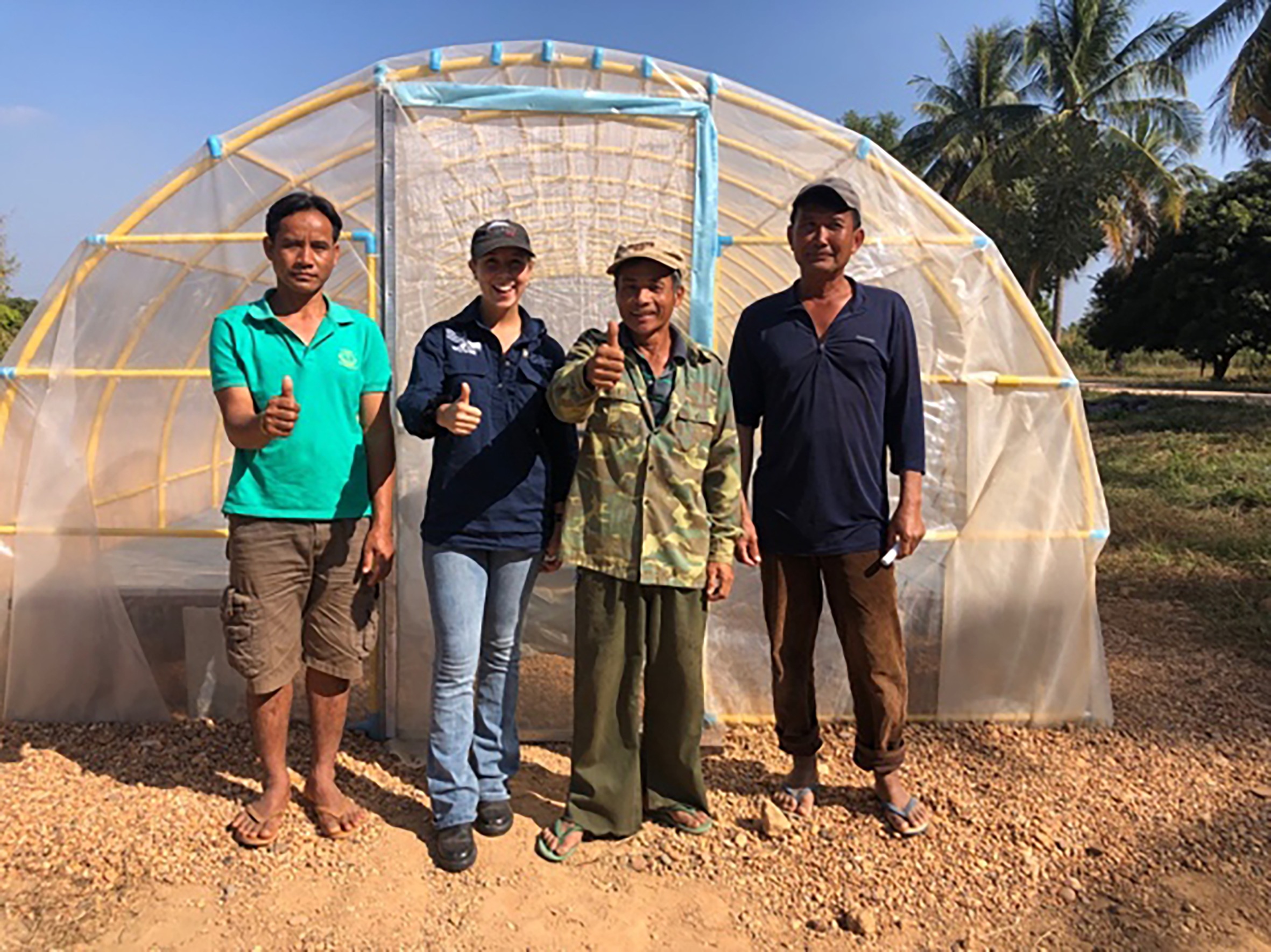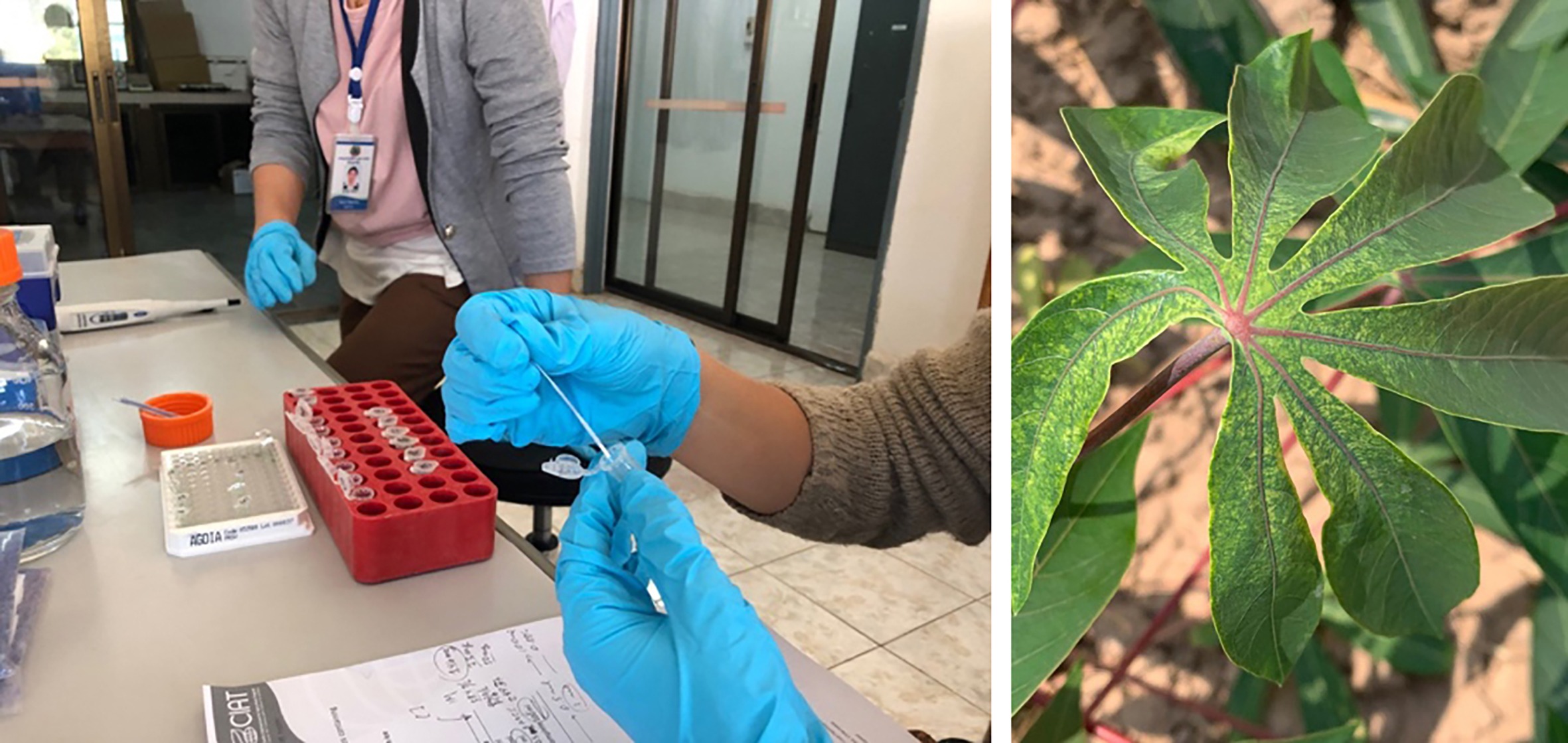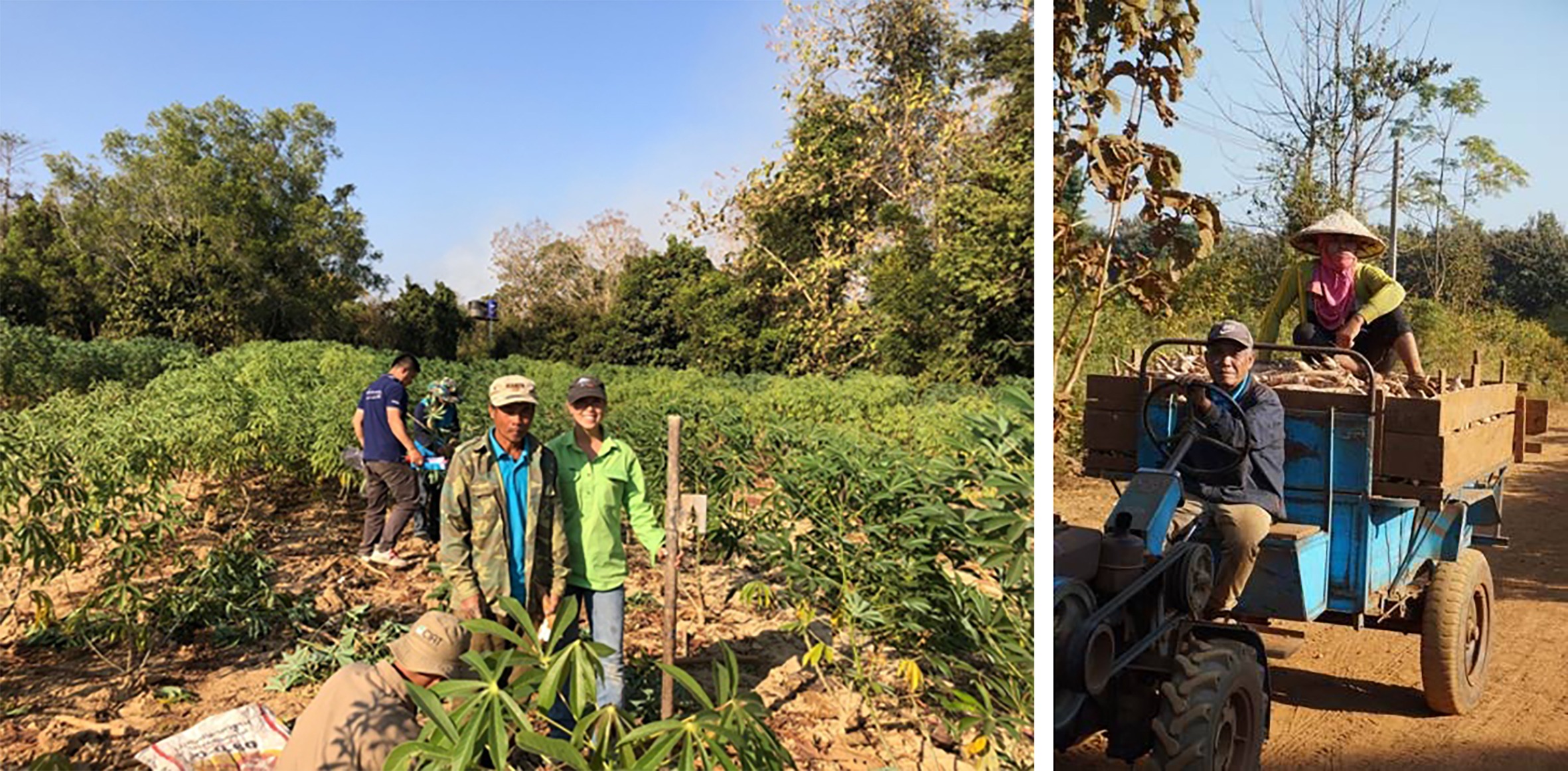

Cassava disease screening for resistance to witch’s broom in Laos
April 28, 2020
As part of our concerted efforts to support and encourage the next generation of Australians in study, careers and volunteering in international agricultural research, the Crawford Fund State Committees proudly support our Student Awards.
Our 2020 Student Awards in ACT, NSW and QLD have been extended due to the disruption to the university year caused by COVID-19 so check out the backgrounder and apply online before Monday 2 November 2020.
These awards allow university students from around Australia to include an international component to their studies, to travel to their host countries to research and explore their chosen topic areas and gain international agricultural research experience and expertise.
Throughout 2019, we have enjoyed sharing the journey of our 2018 recipients of these Awards and their experiences have been diverse and overwhelmingly positive. They are available here.
We now proudly present to you reports from our 2019 cohort as they complete their travels and research. A sample of reports from each State include Jori Bremer from the University of New England; Nadeem Akmal from the University of Canberra; Daniel Waterhouse from Murdoch University; Cassandra Davitt from the University of Melbourne; Bianca Das from the University of Queensland; and, most recently Oliver Gales from the University of Tasmania.
In this report, Rebekah Ash from the University of Queensland explains her trip to Lao PDR to work on a project focused on developing cassava production and marketing systems to enhance smallholder livelihoods which involves the Centre for International Tropical Agriculture (CIAT) and is supported by the Australian Centre for International Agricultural Research (ACIAR).
Bek’s involvement was more specifically in the evaluation of cassava germplasm for resistance to witch’s broom disease (CWBD) but we were pleased to read in her report on the visit that her experiences and learnings extended far beyond these boundaries.
Bek noted, “I learnt that the way we measure success is not transparent across all situations, but rather, it is determined by our circumstances. This is something I will take away with me not just in the agriculture sector but many walks of life.”
“For me this was an important project to be involved in and exposed to as cassava is one of the world’s most important staple foods, sustaining approximately one fifth of the global population and disease is one of the largest factors currently affecting its production.”
Bek’s first week at CIAT involved working alongside Dr Roosevelt Escobar, a colleague from CIAT headquarters in Columbia to build a growing tunnel and greenhouse to assist in rapid multiplication of disease-free cassava at the field station, Na Pok.
She assisted Dr Wilmer Cuellar, a virologist also from CIAT headquarters, in trialling a grafting method (chip bud grafting) to transfer the phytoplasma from CWBD from an infected scion/bud to a clean rootstock. Then, they conducted a polymerase chain reaction (PCR) diagnostic on cassava mosaic disease (CMD) with clean and infected samples of cassava using the newly developed dipstick technology. As part of this process they showed a Lao colleague the PCR process and dipstick technology.
“One of the biggest takeaways for me was the importance of sharing skills with as many in-country scientists as possible and developing tailored processes and technologies that match resource and skill availability,” said Bek.

“Although Laos currently has no reported cases of CMD, it is important for researchers in the region to be able to test their samples using PCR methods rather than purely off visual symptoms.”

“At the beginning of my final week, I harvested a trial with Dr Imran Malik and Lao colleagues. We spent two days in the field taking a number of measurements before and after harvest that will later be analysed to present the results.”

Rebekah travelled to the southern province of Salavanh to attend a workshop on cassava value chains and enhancing productivity, quality and market share. In the workshop, she learnt more about the ‘big picture’ of cassava in Laos, particularly from CLEAN (creating linkages for expanded agricultural networks) who are running a large project to increase production by reducing post-harvest losses in horticulture and developing linkages to increase demand for clean horticulture in domestic, sub-regional and global markets.

“Travelling to the workshop we talked to a number of cassava buyers and processors about how they came to choose a particular buyer and assess premium prices for organic cassava. We also had the opportunity to show farmers images of CMD and ask whether they had seen any symptoms in their field,” she said.
“My experience in Laos was a steep learning curve. From the agronomy and molecular genetics of cassava, to visiting facilities and people across the whole supply chain and understanding the difference in approaches to moving forward in a project between Australia and Laos, it was an invaluable learning experience,” said Bek.
“My experience and skills working with cassava is transferable to my future work and research in Queensland. During my time in Laos and learning more about the wide range of uses for cassava, I have seen an opening for further research into varieties of cassava that may be suitable for growing as a sustainable feed source in livestock production in Australia,” said Bek.
“There are a number of people who contributed to my fantastic experience. I would like to thank Jono Newby from CIAT for helping organise my trip and creating endless learning opportunities for me during my month. Alongside Jono, his colleagues at CIAT all welcomed me into their research projects. This experience would also not have been possible without the help of Mark Dieters from UQ who connected me to CIAT and Jono Newby.”
“Finally, I would like to acknowledge the Crawford Fund and the QLD committee for the funding that made this project possible. It has been an invaluable experience and my gratitude extends beyond words,” concluded Bek.
Epilogue: Prior to COVID-19, Bek secured a placement in Indonesia for seven months studying and working. She credits the links she made in Laos during her Crawford Fund award experience for both the opportunity, and the instant connections and warm welcome she received on arrival in Indonesia.




